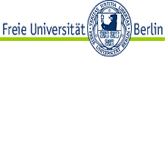
Freie Universitat Berlin, Berlin

Established
1956
City
Berlin
Courses Offered
Institute Brief
An undergraduate degree program is a study program that leads to the studentís first degree or diploma for higher education. This category includes Bachelorís degree programs, but also programs toward the state exam (Staatsexamen), Diplom or Magister degrees. Masterís degree programs, by contrast, are always graduate programs, which means that admission always requires that the student has successfully completed an undergraduate program first. In Germany,agreements laid out by the Conference of Education and Cultural Affairs (Kultusministerkonferenz) state that undergraduate programs that lead directly to a masterís degree are not permitted.
The masterís degree is an academic degree that university graduates earn upon completion of a second academic program. A Masterís degree program lasts two to four semesters and builds upon an undergraduate program. Students who wish to enroll in a masterís degree program are required to have a bachelorís degree or other degree or diploma from one of the single-stage academic programs traditional in the German system (Magister, Diplom, first state exam (Staatsexamen) in law or teaching credential (Lehramt) program; degree in medicine).
Depending on the area of focus, a masterís degree program can allow the student to explore the subject previously studied in greater depth or to branch out into new areas of knowledge. A doctoral program (Promotion) leads to the academic degree of doctor (Doktorat) in a specific discipline. This degree is considered proof of the studentís aptitude to work scientifically or academically at an advanced level. It is based on an independent academic work Ė the dissertation Ė and an oral exam.
